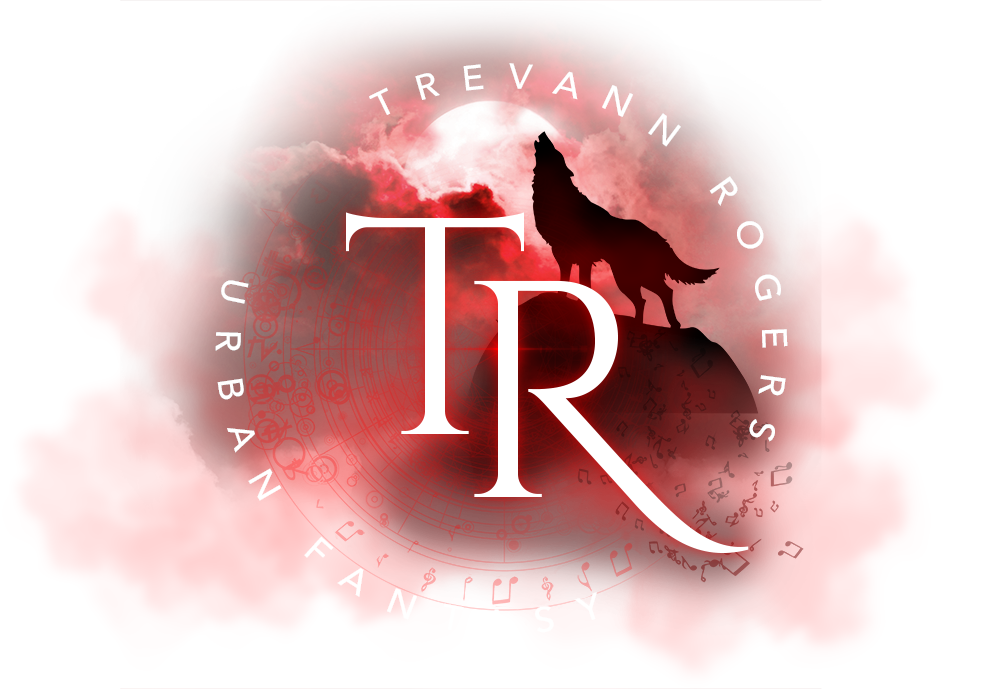 Please join me in welcoming Chanta Rand. Chanta, please tell us about some of the clothing worn by characters in your book, Rise of Queen.
Please join me in welcoming Chanta Rand. Chanta, please tell us about some of the clothing worn by characters in your book, Rise of Queen.
Clothing in Ancient Africa (1061 AD)
While preparing for my Medieval African Historical romance, Rise of a Queen, I did a lot of research on clothing of the period. I came across some fascinating accounts of how the ancients dressed. Much like us today, their outfits varied depending on their social status and the event they attended.
The hot weather in West Africa meant that clothing wasn`t needed for warmth. In the countryside, people wore very little clothing or no clothing. In the courts, people might appear in public wearing no clothing. But because nudity was against the laws of Islam, those Africans who dealt with Muslim traders wore clothing out of respect for the traders’ beliefs.
Wealthy people wore imported fabrics (from Egypt, India, and Asia) of silk, linen, velvet, and brocade. Women usually wore a wrapper (skirt) or kaftan (dress) of fine material. Animal skins were popular too. In Rise of a Queen, my heroine, Nabeela wears a combination of animal skins and rich, sumptuous fabrics. Arabs wore sewn clothing, but normal people could only wear pieces of cloth wrapped around them. Royalty, such as King Kareem wore long, colorful robes in rich fabrics with loose, wide-legged pants beneath.
There were also many talented weavers who wove cotton fabrics, enhanced by painting wet mud on woven cloth, and then placing the fabric in the sun to dry. This created a permanent design in the cloth. Color was important. Yellow and purple was only worn by royalty. Red, black and brown were popular colors for everyone else.
Clothing was always adorned with jewelry, no matter what one’s social status. The wealthy wore gold, silver, and precious gemstones like jade, onyx, lapis, coral, and cowrie shells. Cowrie shells were also used as money. They were so valuable, during the slave trade hundreds of years later, European slave traders paid for African slaves with this form of currency. The poorer citizens wore wood, bone, shell, and jewelry made of animal horns and plant fibers. Footwear included leather sandals or sandals woven from plant fibers, but most people walked around barefoot.
I’ve attached some pictures to help give you a better idea.
Types of cowrie shells
Examples of gold earrings worn in Ancient Africa
Examples of Dashikis and Kaftans. I don’t know if the men in Ancient Africa were this fine, but I can only assume! ~~~~~~~~~~~~~~~~~~~~~~~~~~~~~~~~~~~~~~~~~~~~~~~~~~~~~~~~~~~~
 Here's an except from Chanta's book, Rise of a Queen:
Here's an except from Chanta's book, Rise of a Queen:
1040 C.E. Kingdom of Ghana, West Africa
Wagadugu Empire
Nabeela guzzled from the goblet of wine in her room. Maybe it would give her courage for the loathsome task ahead of her. The fermented liquid slid down her throat and winded is way through her knotted entrails to her empty stomach. Good. The concoction would take effect sooner without any remnants of the wedding feast lining her belly. She had not been able to eat a single morsel, despite her mother’s half-hearted attempts to get her to do so. This was no cause for celebration. Not when she’d just married a man old enough to be her father. Indeed, possibly old enough to be her grandfather, had he lived.
Her new husband, Hakim, had no problem eating. Earlier, he’d shoveled massive amounts of food into the entrance of the seemingly bottomless pit that served as his mouth. Nabeela grimaced recalling how his sausage-like fingers had stuffed shanks of braised lamb past his thick lips. His gluttonous appetite had earned jests and ribald comments from his troops. She’d contained her disgust as she watched him shove everything on his platter into his mouth. Errant crumbs escaped, only to be captured in the deep folds of his sumptuous robes.
He was a repulsive pig.
And she was forever tethered to him through marriage.
She took a deep breath. She could endure this. She had to, for the sake of her mother, Falak and her ancestors. It was better to suffer the injustice of this world than to anger the ancestors in the next. Her virtue was the only weapon she could bargain with right now. In return, Hakim offered a generous bride price of cattle and gold for her. He was a Hooro, a member of the ruling class who administered authority. By strategically marrying up one caste she ensured her safety as well as her family’s. She accepted this as her duty. There was no pleasure in duty—only reward once the work was done.
She walked the few steps from her quarters into her sleeping chamber where Hakim waited. She was veiled, as was the custom. Her new husband would remove the veil, consummate the union, and leave his seed in her. That was her only value—to produce an heir. Then hopefully, he would leave her be. Though the women of her clan had little political power, she hoped to change that.
Hakim already had three dead wives and one living son. The wives had all died under mysterious circumstances. Rumors of poisoning abounded. Only the bravest whispered the name of Ghazi, Hakim’s son. It was suggested he’d committed the acts, so jealous was he of anyone, male or female who got close to this father.
Nabeela had few encounters with Ghazi, but she made sure to steer clear of him. He had a cruel streak longer than the Niger River. He pounced like a rabid dog on anyone who dared speak against him. She’d seen first-hand how he treated servants and slaves, threatening to send them to the salt mines in Taghaza—a death sentence. Though only five years older than she, he had the disposition of a bitter old man.
And he was now her stepson.
He’d taken Nabeela, her mother, and Falak in after the soldiers ravaged their citadel years ago. The militia still waged their war of terror, taking advantage of the vast distances between the cities to wreak havoc. Villages and towns that had been settled by generations of influential Soninkes were being burned to the ground on a daily basis.
Nabeela and her family had lived a secure existence until a few months ago when Ghazi set his sights on marrying Falak. He’d insisted it was merely to unite their families. But her mother had persuaded Hakim to marry Nabeela instead. After all, Falak was only fourteen years old. Too young and innocent to be married to a snake with a voracious thirst for power. Ghazi was so enraged, for the past few months, he’d kept Falak in a separate part of the keep. She would be released as soon as this marriage was consummated. It was Ghazi’s way of assuring Nabeela kept her word. There were days she wondered if they were better off eking out an existence in the forests than here under Ghazi’s crushing thumb.
Nabeela pushed her depressing thoughts aside and entered her bedchamber. Hakim’s broad, naked back greeted her. Flabby folds of skin hung from his solid frame. She prayed to The Creator she would not be crushed beneath his massive girth.
She circled him slowly, her long robes flowing as she walked. His eyes lit up when he saw her. His grin revealing crowded rows of yellow teeth set against dark skin that reminded her of a jackal hunting at night. Her stomach churned. She had not married him for his good looks, but for his protection and influence from the Almoravid caliphate, Berber Muslims encroaching from the North.
For years, Abdulla ibn Yasin, the leader of a large group of Almoravids, had been gaining in power, and trying to force Islam down the throats of Ghanian kings. But the kings refused to convert. A shift in religion was only part of the problem. Ghana was rich with gold, and salt—a commodity, almost as valuable as gold. And although the kingdom had flourished for hundreds of years, trading with peaceful Berbers and wealthy Arab merchants, riches had a way of corrupting even the most pious men.
Now the best way to protect the Soninke remote regions was for the king to give more power to his minor kings and military governors. This way, they could defend these vassals against the constant raiding of the Sanhadjas and the Almoravids.
It seemed no one was safe in these turbulent times. And so, Nabeela found herself in need of a defender. Everyone paid tribute to someone. Since she had no wealth, she would pay in flesh. Without Hakim’s protection, her family was at the mercy of warring troops. She was merely a pawn in the process, but she intended to get as much power as she could. Power was more valuable than sex or beauty. Mother had taught her that.
Hakim reached for her, his meaty fingers attached to pudgy wrists and corpulent arms. He eyed her like a hungry crocodile at a watering hole. The sounds of his strained breathing filled the air.
“Been …waiting all night to…look at you. Up close.”
She was sure the only thing he wanted to see up close was an overstuffed platter placed in front of him.
Thick lips that had just hours ago sucked the greasy cartilage from chicken bones now wanted to sample her flesh. He removed the faceplate of her veil. His eyes widened in appreciation. “Comely creature.”
Nabeela took offence at being called a creature. She had never considered herself comely, though her mother often told her she was. She felt her nose was too big and her eyes were too far apart. Truly, beauty meant nothing without the resources. Otherwise, she was just a whore. Using her body to get what she wanted. She had no plans to do that.
Hakim issued a gruff command. “Disrobe.”
She did so without hesitation. For months, she’d known this moment would come. Best to get it over with. There would be pain the first time. She knew that, too. Pain was part of life. Mother had also told her this.
Nabeela stood in all her naked glory in front of her new husband. She would not let him see how disgusted she felt. Instead, her eyes wandered below his waist. She frowned at the fleshy proboscis jutting from the wiry bush between his hairy thighs. She’d never seen a man’s root before. Hakim’s was the size of her forefinger. It was the only emaciated part of him.
“Lick it,” he ordered.
Her heart beat like the frenzied rhythm of a drum. This was one thing she had not anticipated.
If I have to put that thing in my mouth, I will wretch.
She closed her eyes, and choked back the bile rising in the back of her throat. To think, she’d preserved her maidenhead for this moment. That was her saving grace and the only reason she’d been able to barter herself.
Her eyes flickered open when she felt Hakim’s meaty fingers groping her breasts. He had a look of rapture on his face. She bit her lip. She would have to endure this ogre’s fondling for days, weeks, perhaps even months until she knew she was with child. It would be hard to do when his touch made her skin crawl.
She sank to her knees on the thick tapestry of rugs as though she were being led to her death. Hakim’s manhood jutted out like a flag on a windy day. Her face hovered near the hard flesh.
“Yes,” he groaned in anticipation.
Nabeela prayed for courage.
Oh, divine goddess, please let me survive this ordeal. I must!
Summoning the strength of her ancestors, she leaned forward and opened her mouth. Her lips were mere inches from the tip of his shaft. Without warning, he took a step backward. Confused, Nabeela looked up. His mouth was distorted into a grimace, frozen into what would have been a lop-sided grin if not for the grotesque mask of pain. His puffy jowls slackened as one hand clutched at his heart, grasping a fistful of wooly chest hair.
Nabeela gasped as Hakim’s corpulent body crashed to the floor like a tree being felled in the forest. She watched, horrified as his eyes rolled back into his head, and his labored breathing abruptly ceased. She clapped her hand over her mouth to stifle her scream. She was not prone to emotional outbursts, but the death of her new husband was reason to panic. All her hopes for a better future had just died with him.
To find out what happens to Nabeela, pre-order your copy from Amazon.



